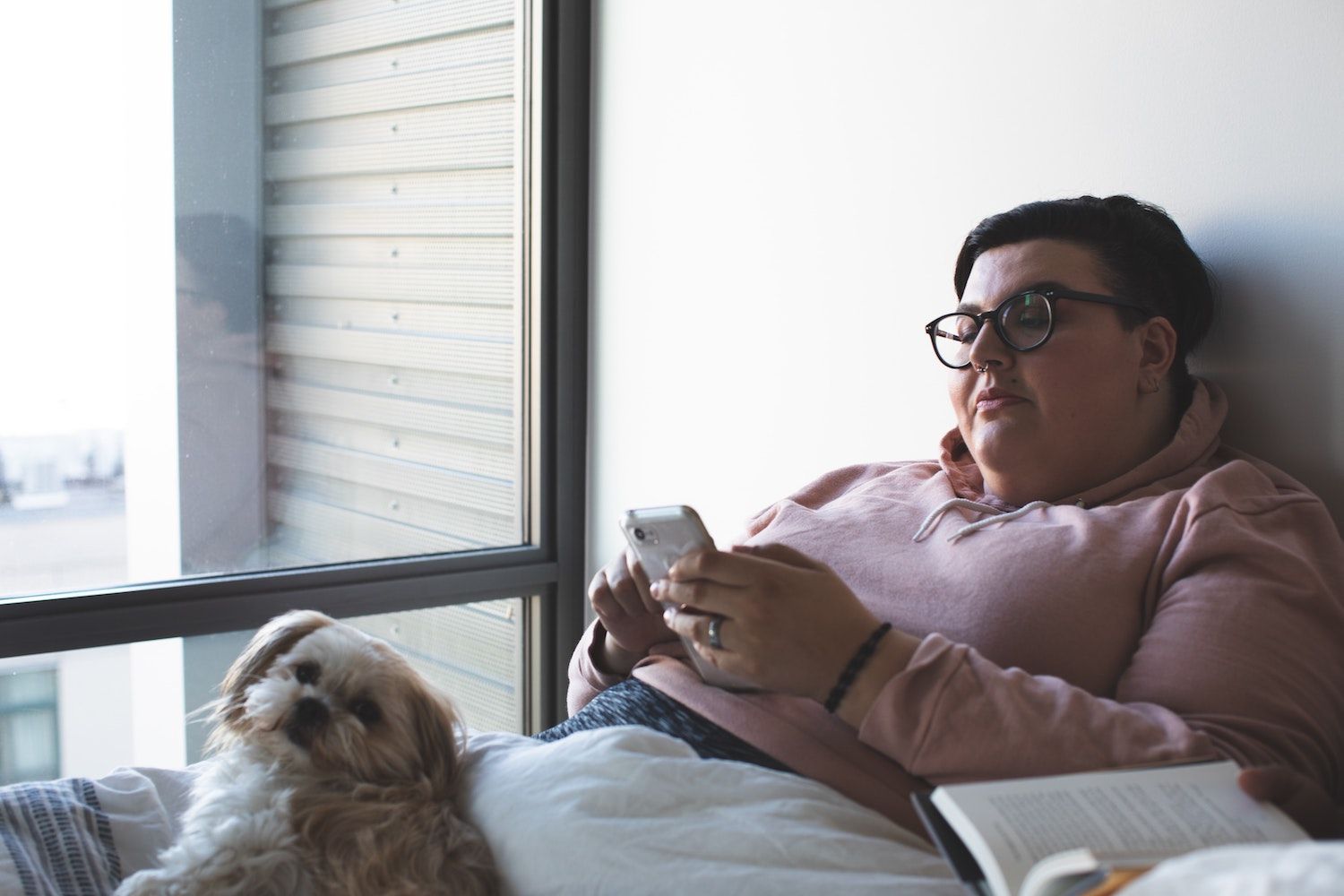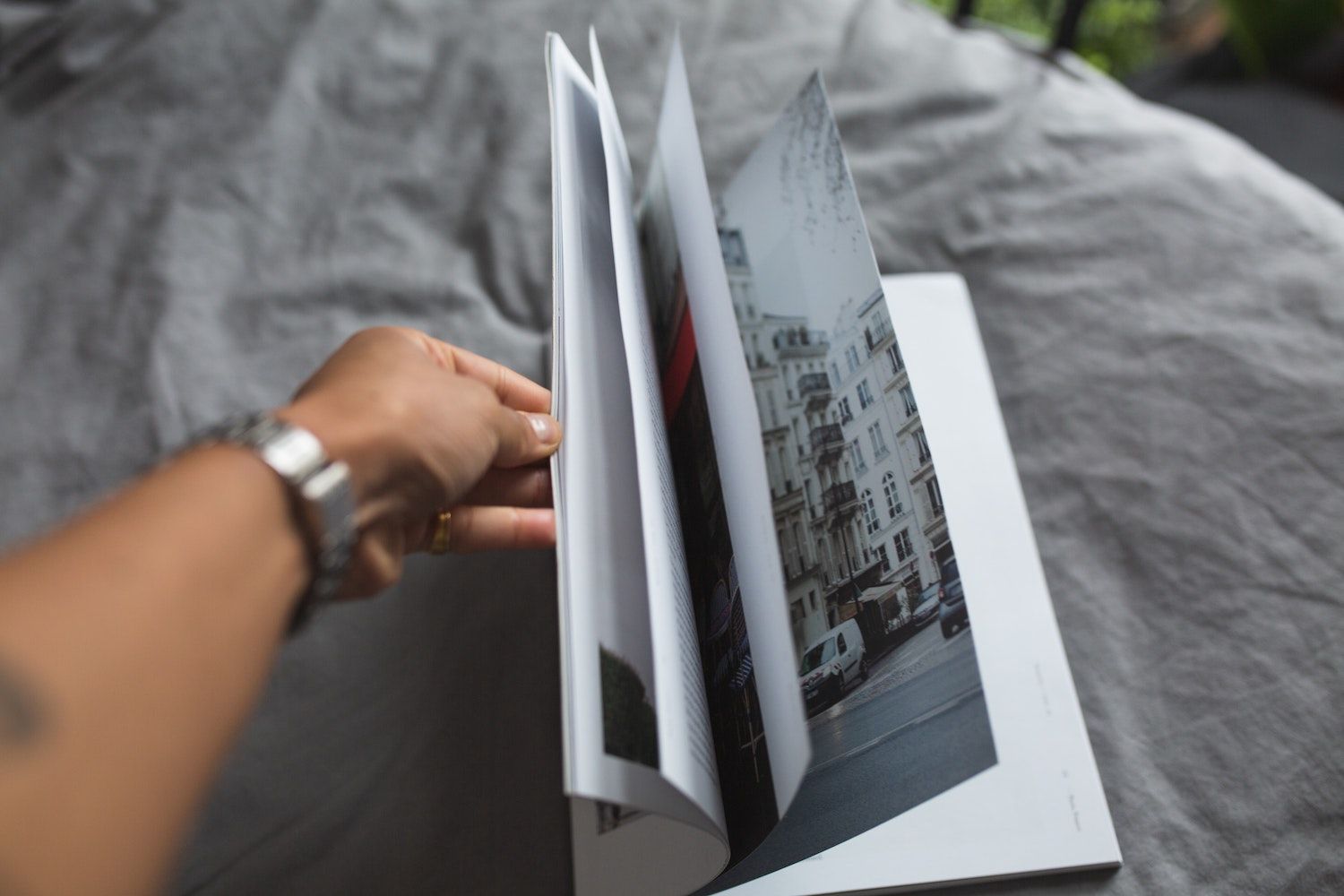Constantly scrolling right now? You’re not alone, but it could be impacting your wellbeing
Just before I started writing this, an alert came up on my phone with my weekly screen-time report. Instead of looking at it, I swiped the notification away because I knew the numbers wouldn’t be pretty.
Talking to friends and colleagues, I know I’m not alone. A lot of us are on our phones more than usual right now. With lockdown in place and no real idea when it’ll be over, many of us have time to fill and a lot of us are filling that time by scrolling on social media.
A recent YouGov survey commissioned by magazine app Readly found that eight in 10 Brits admit to spending meaningless time online. But, is spending meaningless time online such a bad thing?
Normally I would say no. I’m a big believer in the positives social media can bring, but these are extraordinary times and the survey did find it’s negatively impacting three in 10 Brits (rising to 42% in those aged 18 to 29). The common areas social media is affecting include self-esteem, depression and problem sleeping.

Psychologist Dr Becky Spelman notes that staying connected is of course important but constant exposure to conspiracy theories, ‘fake sews’ and misinformed advice is not at all useful.
“For those who find that their time on social media is getting them down or causing anxiety, it is important to know when to step away. It is a good idea to set aside a specific time every day to check social media and then to put it away and do something different or explore other interests.”
When asked how they look after their mental health, survey respondents said getting enough sleep was key as was exercising, reading, following a healthy diet and meditation.
“Reading is an excellent way to foster good mental and emotional health - but it should be ‘active’ reading, rather than passively absorbing information as you scroll through Facebook or other social media feeds.
“Some people are using the quarantine as an opportunity to learn something - but reading escapist fiction or keeping up with celebrity gossip in a magazine can be just as fulfilling. Anything that engages the mind and the emotions is useful.” Dr Spelmans explains.
Reading a chapter or two of fiction before bed has become a new routine for me during lockdown, so I’m not surprised to hear more of us are turning to escapism in this way. Magazine app Readly has seen a notable increase in activity in the last month. In particular, the following five categories have seen the most increase in activity in March:
- Crosswords and Puzzles 28%
- Mindfulness & Health 21%
- Home and Renovation 18%
- Gardening 14%
- Crafts 12%

How to stop mindless scrolling
Dr Spelman has shared the following tips to help avoid endless scrolling, reduce anxiety and help foster good mental and emotional health during lockdown:
1. It is not realistic to suggest staying completely away from social media. Rather than trying to do so, consider giving yourself a particular time slot every day to check your social media outlet of choice. You may find that you start to feel anxious and worried; that’s OK. You don’t have to deny your feelings. However, make sure that you stick to your time slot, and then do something else.
2. Mindless scrolling through your phone is a learned habit, and the easiest way to unlearn it is to replace it with another one. This involves using a certain amount of discipline and taking up another behaviour instead. You can have several magazines or books “on the go” instead, so that you can always read something to suit your mood; an easy magazine article about fashion trends for a bit of escapism, and something more demanding for when you are feeling up to it.
3. Work some meditation or relaxation techniques into your day. This can be as simple as just sitting out of doors, or near an open window, for 10 minutes every day while you let your mind rest and just experience the sounds, sights, and smells around you.
4. Explore your interests with magazines. This is a good time to delve into interests that you already love as well as explore the ones you’ve never had time to develop in the past. There is literally a magazine out there for every possible hobby or interest.
5. Enjoy nature. If you have a garden or access to a park, you’re in luck! Most people find that exploring and enjoying nature is very rewarding. But even if you live in a small flat or apartment, you can watch the birds you see from your window or take care of a houseplant.
6. Your reading habits can dovetail with your other interests. If you love cooking, for example, you could read about nutrition in wellness magazines, or get lost in a book with a food-related theme, such as Chocolat by Joanne Harris.
7. Consider setting up a reading club with some of your friends and family. You can meet up online once a week to discuss what you are reading. If you all read the same magazine or article, you can talk about it together – or share tips on what you have been reading separately.
8. Plan for the future. We don’t know how long the current restrictions will last, but we do know that, at some point, they will come to an end. While this is not the right moment to start booking holidays or enrolling on special interest courses, you can certainly start to plan for the future in a general way. So, if you’ve always dreamt of being a photographer, for example, you can read up on it in a magazine and find out about the courses you can do, and the places you can visit, in the future.
If you’re struggling with your mental health right now, there are options for support. Counselling Directory lists thousands of online counsellors who can support you remotely, from the comfort of your own home.


Comments